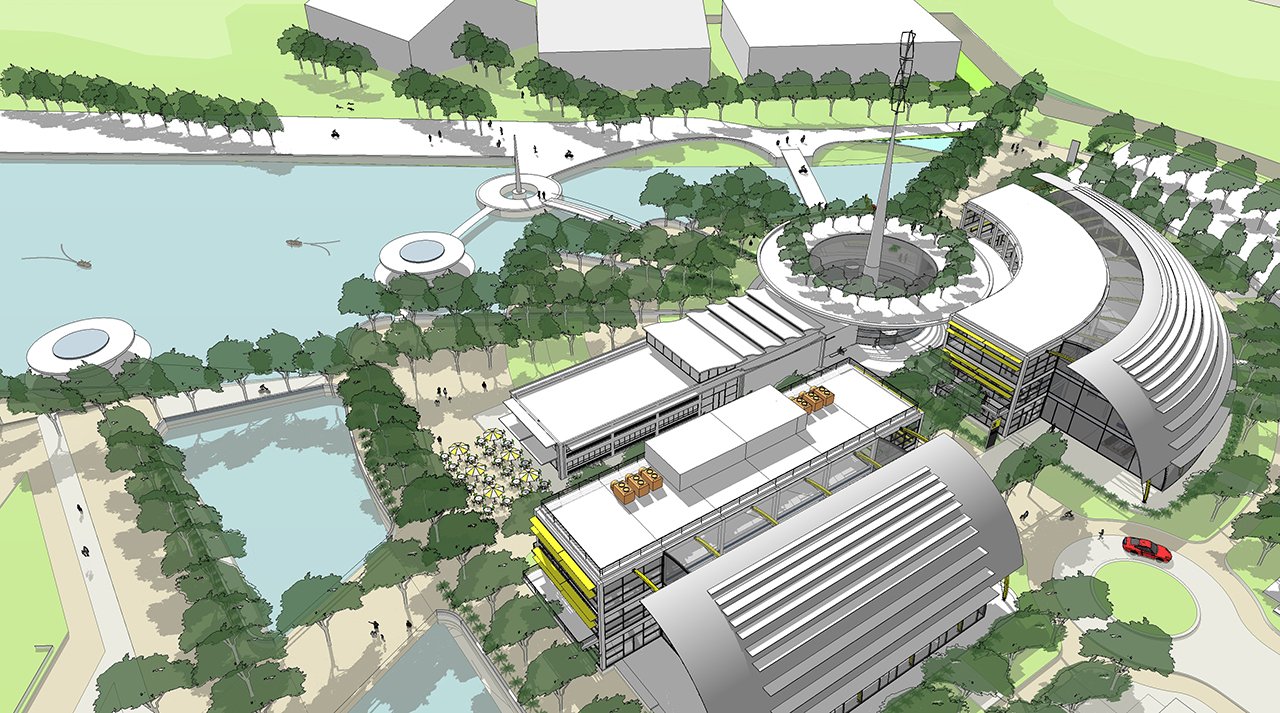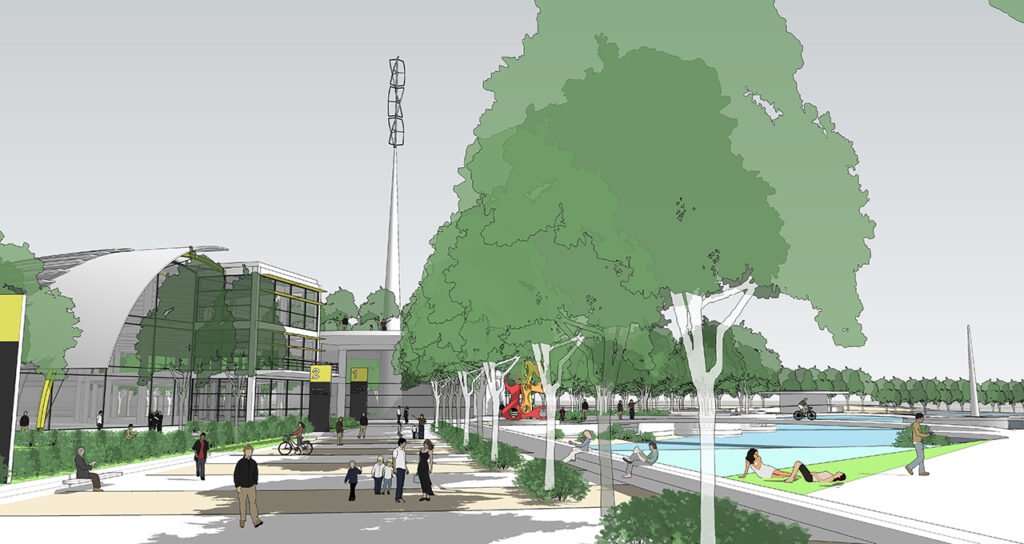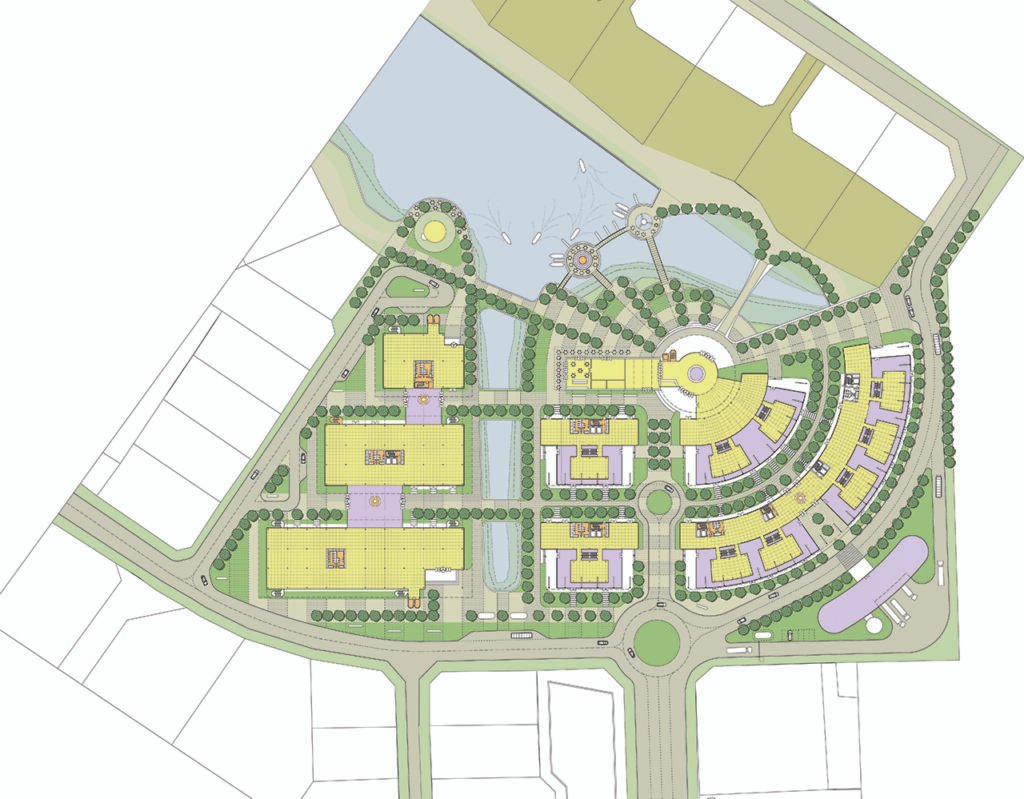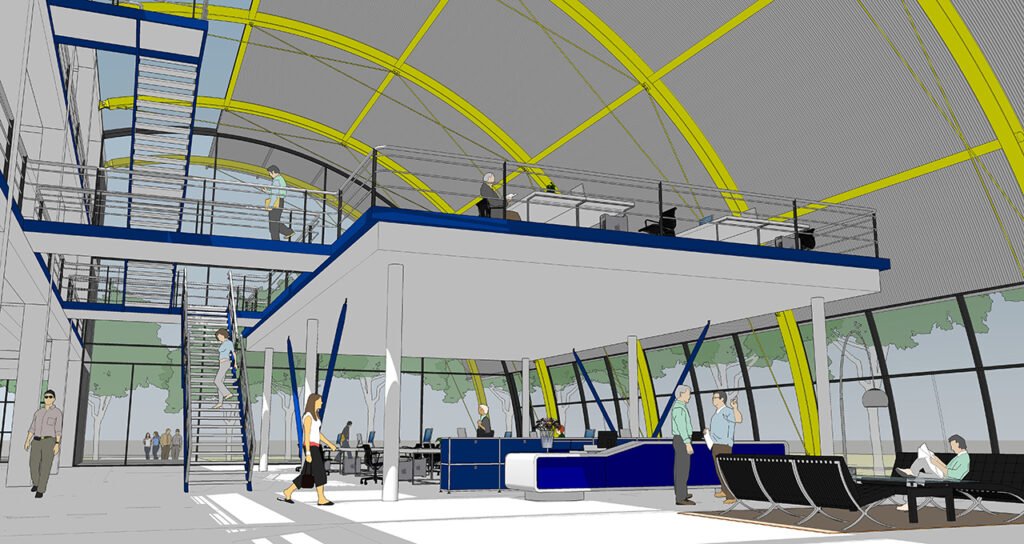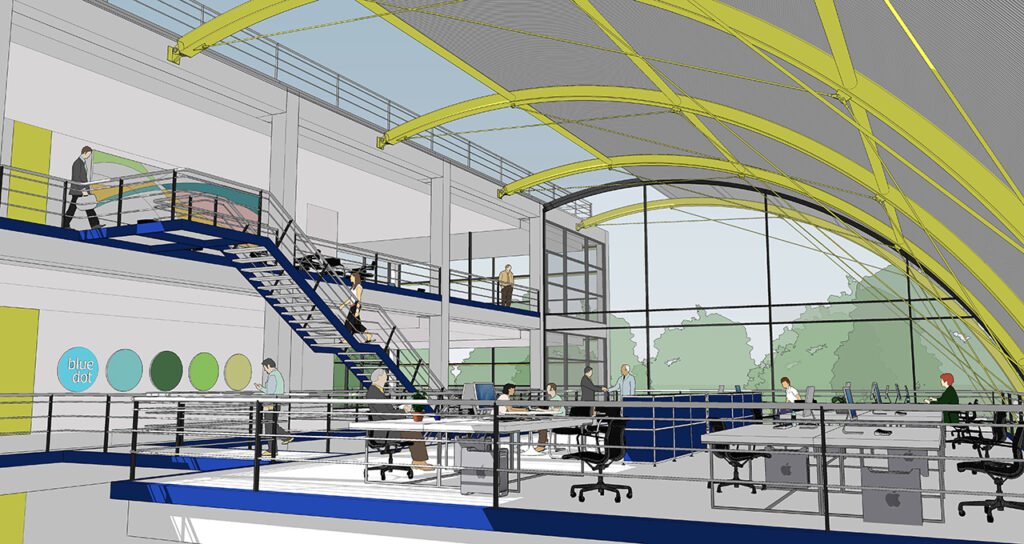Development Case Study: A Green Technology Business Park in False Bay, South Africa
Nick Hancock Design Studio (NHDS), in collaboration with Designsape, has envisioned a transformative project for a green technology business park in False Bay, South Africa. This case study highlights how a holistic masterplan can cultivate a net-zero environment through symbiotic uses, creating a sustainable ecosystem that invests in our future.
Harnessing Renewable Energy
Eco Park’s core is a 1,500-square-meter data centre powered by an extensive array of solar panels complemented by wind turbines. With approximately 3,000 hours of sunshine annually, Cape Town’s climate makes solar energy the perfect power source. This energy will sustain the data centre and provide electricity for the entire park, including research labs, offices, workshops, and vertical farms. By aiming for a net-zero energy model, Eco Park ensures it generates as much energy as it consumes, demonstrating a commitment to sustainability.
Energy Efficiency Through Innovative Design
One of Eco Park’s most exciting features is its approach to energy reuse. The data centre’s waste heat will be efficiently captured and redirected to warm the vertical farms. This creates an optimal climate for year-round agricultural production, allowing local food to flourish without relying on external heating sources. This waste heat will also power hot water systems for the offices and workshops, reducing energy demands.
Natural Cooling and Resource Management
The existing lake is crucial in Eco Park’s natural cooling strategy. By harnessing cool water from the lake, the park will regulate temperatures for the data centre and other buildings, significantly lowering the need for mechanical cooling. This passive cooling method aligns perfectly with Cape Town’s moderate climate, where temperatures average around 17°C (63°F) and peak at about 28°C (82°F) during summer.
Moreover, Eco Park emphasizes sustainable water management through rainwater harvesting and greywater recycling systems. The collected rainwater will be filtered and reused for irrigation, supporting vertical farms and landscaped areas while conserving precious local water resources.
Conclusion: A Vision for Sustainable Development
The Eco Park project exemplifies a holistic approach to sustainability. By repurposing the existing exhibition centre and lake and integrating renewable energy and innovative water management practices, this development sets a new benchmark for eco-friendly design. It fosters symbiotic relationships between the data centre, energy systems, vertical farms, and other facilities, creating a self-sustaining, energy-efficient hub.
As we face the challenges of climate change and resource depletion, the Eco Park stands as an inspiring model for future developments. It addresses the pressing needs of our time, showcasing how we can build greener, smarter spaces that benefit the community and the environment.
